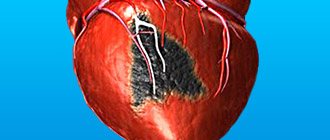Many people like to enjoy the taste of freshly brewed coffee with a tonic effect, without thinking about its negative effects on the body. Meanwhile, the effect of coffee on the organs and systems of the body is diverse and sometimes leads to unpleasant consequences - in particular, to hand trembling, which is often the first manifestation of pathology. For many years now, scientists have continued to argue about the qualities of the popular drink and its effect on the body.
Why does caffeine cause hand tremors?
Caffeine is a natural stimulant and alkaloid. It affects almost all systems of the body, including the cardiovascular and nervous. In some cases, there may be an imbalance in the nervous system, the wrong signals are sent or their processing is disrupted. As a rule, this occurs in those who drink a lot of coffee. The mechanism is similar to the effects of alcohol - after long-term use on an ongoing basis, the functions of the nervous system are also disrupted and hands shake after drinking coffee. Such tremors are only possible if you drink a lot of coffee every day.
Another factor is the release of adrenaline, accelerating the heart rate. The vessels narrow, tachycardia may appear, pulsation in the temples, and hands begin to tremble. It can feel the same way if you feel anxious in a stressful situation. This most often occurs in those who received a large dose of caffeine at one time, or simply drank coffee during times of stress, illness, lack of sleep, etc.
Hands often shake after coffee for those who love the combination of coffee and cigarettes. Nicotine and caffeine together quite actively constrict blood vessels, this is a sharp blow to the nervous and vascular systems, just like drinking the drink on an empty stomach. Most people can feel tremors in such a situation.
How caffeine works
Coffee contains the stimulant alkaloid caffeine. Once in the body, it affects the deep structures of the brain - the pituitary gland and hypothalamus, which are responsible for the functioning of the entire endocrine system - the thyroid gland, adrenal glands, and pancreas.
Working as an accelerator of all processes, caffeine stimulates nerve fibers, which in turn send a signal to the endocrine glands and the body begins to work many times faster. Only a very healthy body can withstand this regime for a long time.
Of course, after one cup of coffee a day there will be no illnesses, but there are people who drink 5 - 10 cups, practically without getting off the dope. In addition to simple hand tremors, much more serious problems can arise after coffee.
For example, the absorption of calcium will be impaired: within 7 hours after drinking strong espresso, the body does not absorb calcium from food. This means that calcium from bones and teeth is used to meet needs.
Can coffee make you shake if you drink a lot at once? It can. Due to the excess concentration of caffeine, as it intensively breaks down glycogen. The body reacts to such a situation as a stressful one, and therefore activates the nervous system.
Loss of glycogen means loss of strength and life - this is one of the most ancient instincts embedded in the brain. Fortunately, it still continues to work, so a person can stop in time or take measures to neutralize the alkaloid in the blood.
Scientists' research on hand tremors after coffee
American scientists conducted a study in which about 150 women from 23 to 60 years old participated. The subjects drank 3 cups of coffee daily and otherwise led a normal lifestyle. After a couple of weeks, almost everyone’s hands began to shake after drinking coffee: more than 140 women noted that when they drank a cup of their favorite drink in the morning or when they were sleep-deprived, their hands began to tremble, even mildly.
Stronger tremor was observed in those who already had problems with high blood pressure and vegetative-vascular dystonia. By the end of the study, women in this group complained not only that their hands were shaking after coffee, but also chest pain, weakness, and shortness of breath.
The trembling of hands after the first morning cup of coffee was always noticeably stronger in a state of stress, lack of sleep, or illness.
Types of tremor
Neurologists classify shaking hands according to the types of occurrence:
- Physiological tremor. It is not uncommon for hands to begin to shake due to nervous tension, stress or muscle strain.
- Anxiety disorders. With a neurological cause of tremor, other problems come with it: insomnia, nausea, nervousness, increased fatigue. As you might have guessed, the cause can be severe stress.
- Thyroid gland dysfunction. Tremor can be one of the symptoms of thyrotoxicosis. Other signs indicating this disease are weakness, causeless anxiety, rapid heartbeat, shortness of breath, and sleep disturbances.
- Essential tremor. In this case, the hands shake in a certain position. Most often, this tremor is inherited and does not have serious consequences.
- Parkinson's disease. This is a very serious disease that is common in older people. With it, the patient's hands shake during calmness. Parkinson's has a number of associated symptoms: loss of balance, deterioration of coordination, development of memory loss, amnesia and others.
Should you be afraid of hand tremors after coffee?
In general, doctors do not consider this symptom to be terrible: there is no point in calling a doctor or going to the hospital unless it is a critical overdose of caffeine (usually the face turns blue). It's important to reduce the dosage, skip the extra cup, or switch to a weaker drink if you can't give it up completely.
The concept of “drink less coffee” in this case is quite abstract, since for some, tremors may begin after the sixth cup, and for others, after the first. Doctors do not recommend that even healthy, physically strong people drink more than 3-4 cups a day, but those who have problems with the heart or blood vessels should be more careful and reduce the amount of drink if this causes hand tremors.
To understand how serious it is, give up coffee for a week or significantly reduce its amount and dosage. If your hands do not shake less, you should consult a doctor. If you notice an improvement in the situation, then it’s solely due to caffeine.
Abrupt caffeine withdrawal can also lead to hand tremors. Therefore, if you decide to take care of your health, reduce your caffeine dose gradually.
Overdose symptoms
What other symptoms of caffeine overdose can a person experience:
- Stomach pain due to excess secretion of acid and digestive juices by the pancreas.
- A surge of adrenaline, which manifests itself in increased activity and emotionality. Adrenaline is produced by the adrenal glands, so the kidneys are involved in the process - the person begins to go to the toilet more often.
- Dizziness can occur due to dehydration, as caffeine speeds up the removal of fluid from the body. The brain is the first to suffer, as it receives less blood and oxygen.
- The solar plexus area shakes from coffee, since there are the main peripheral nerve nodes that control the functioning of all internal organs.
People who naturally have low blood pressure react worse to caffeine. If they drink strong espresso, coffee tremors and well-being will sharply worsen. This is especially true for those who rarely drink coffee drinks.
Coffee for hypertension
Hypertensive patients begin to shake after drinking coffee if they drink espresso after a hearty lunch. The mechanism is that too much stress is placed on the body - digesting food and neutralizing caffeine.
Typically, hypertensive people are overweight people, their blood vessels are half closed with cholesterol plaques. The problem here is no longer coffee - it actually helps dissolve unnecessary fat.
Video: How to get rid of hand tremors
After a fatty, heavy meal, the blood becomes thicker, and the person does not help himself digest the food, for example, by drinking a couple of glasses of water before lunch to stimulate the pancreas.
To push through thick blood, the body is forced to increase pressure. With regular repetitions of the cycle, the kidneys suffer.
Caffeine for VSD
Vegetative-vascular dystonia is characterized by attacks of panic attacks or, conversely, depressive states. Shortness of breath, dizziness, rare urination. Caffeine initially normalizes the condition of a person suffering from VSD, then the body’s functions are completely upset and the symptoms of the disease worsen with a vengeance.
Usually, after reducing the dosage of caffeine, the condition returns to normal, but this cannot be done at once, otherwise withdrawal syndrome will occur. In this group of patients it is more pronounced and lasts longer.
People with VSD are recommended to drink no more than 1 cup of espresso per day. It is better to dilute it with milk or cream and consume it after meals. This way you can please your taste preferences without harming your health.
What to do if your hands shake after coffee?
Usually it is enough to wait 20-30 minutes for the symptoms to noticeably weaken or go away altogether. You can help yourself in other ways:
- Drink pure still water, a glass or two.
- Drink milk, it neutralizes the effects of caffeine.
- Some baristas recommend eating a banana, as it contains many beneficial vitamins, especially B vitamins.
- A walk in the fresh air helps a lot, or, as an option, some physical exercise to speed up your metabolism so that the caffeine is processed faster.
- You need to calm down, perhaps lie down for a while or even take a nap.
If your hands are shaking a lot, you can take a sedative or a medicine for the heart and blood vessels, if you sometimes use it in other situations. But it’s better to wait a while, usually everything goes away on its own. If the tremor does not go away within half an hour, and other symptoms are added - dizziness, chest pain, tachycardia - it may be worth calling an ambulance.
Recommendations for getting rid of trembling limbs
Coffee tremors disappear after about 30 minutes. To make unpleasant symptoms disappear faster, it is recommended to get rid of them in the following ways:
- Drink one to two glasses of water, but it should not be carbonated.
- Drink a glass of milk. It has been proven to have a neutralizing effect on caffeine.
- Eat a banana. It contains B vitamins that calm tremors.
- Take a walk in the fresh air. This helps speed up your metabolism to absorb caffeine.
- Performing simple physical exercises can help you cope with the negative effects of coffee.
- Lie down for a while so your heart can calm down.
If you are shaking after coffee and it is difficult to bring your body back to normal, it is recommended to drink a sedative intended for the cardiovascular system. But under any circumstances, the best option is to wait a little time. If the calming effect does not occur, and you also begin to feel sick, feel dizzy and have an increased heart rate, then you cannot do without an ambulance.
If the shaking stops, caffeine is to blame and should be avoided. If the trembling continues, it is necessary to undergo an examination to find out the exact cause of the pathology.
Many people note that after drinking coffee their hands shake and tremors occur. This symptom is not observed in all lovers of the invigorating drink; in some cases it may manifest itself mildly; This phenomenon often appears with excessive consumption, and can also occur after a cup of tea. However, tea does not liquefy as well as coffee beans, so the actual caffeine content in the mug is less.
Conclusions:
- Caffeine is a stimulant and has an active effect on the cardiovascular system.
- Caffeine is an alkaloid and affects the nervous system.
- The likelihood of hand tremors is higher in those who have cardiovascular diseases, high blood pressure or vegetative-vascular dystonia.
- The tremor usually goes away on its own within 20-30 minutes, and this is not a reason to see a doctor if there are no other signs of worsening the condition.
- To cope with hand tremors after coffee, drink water or milk, eat a banana, and do some exercise in the fresh air.
Is it due to nerves?
If a person has a nervous disorder or depression, then a very typical symptom is hand trembling. But if such a symptom is observed, this is not necessarily a nervous disorder. The reasons can be very different. For example, after intense physical activity. But if this is the reason, then after a short time the symptom will go away.
If you feel upset and your hands begin to tremble, this is a normal reaction. But in such cases you need to observe how often this happens. Some people react to stressful situations more emotionally, and even with minor problems they experience hand tremors. This is a hysterical tremor.
If trembling is observed for a long time and is not a consequence of physical activity or stress, then this indicates a painful condition.











